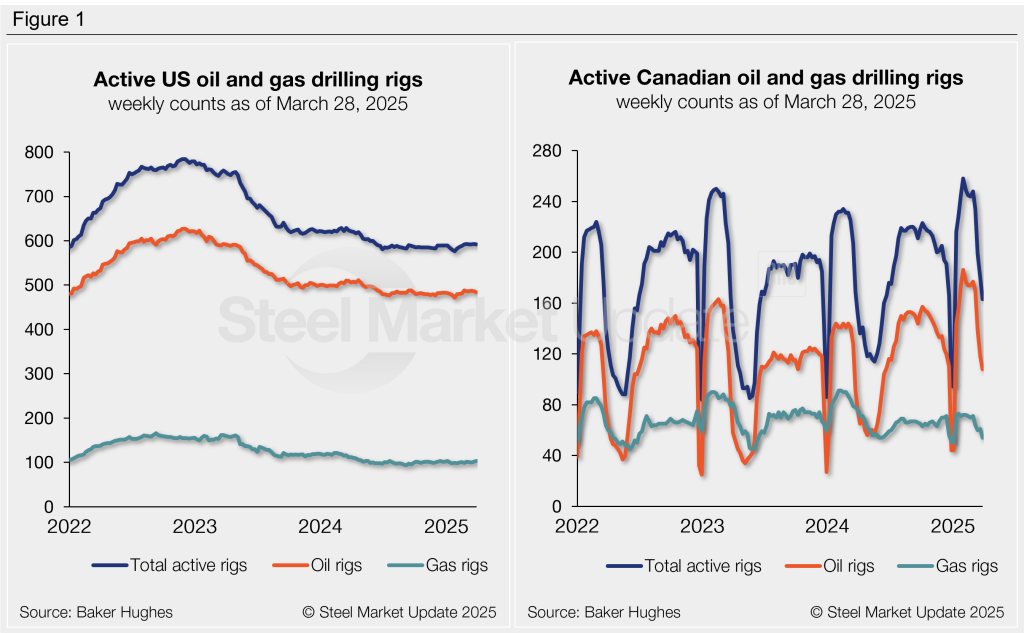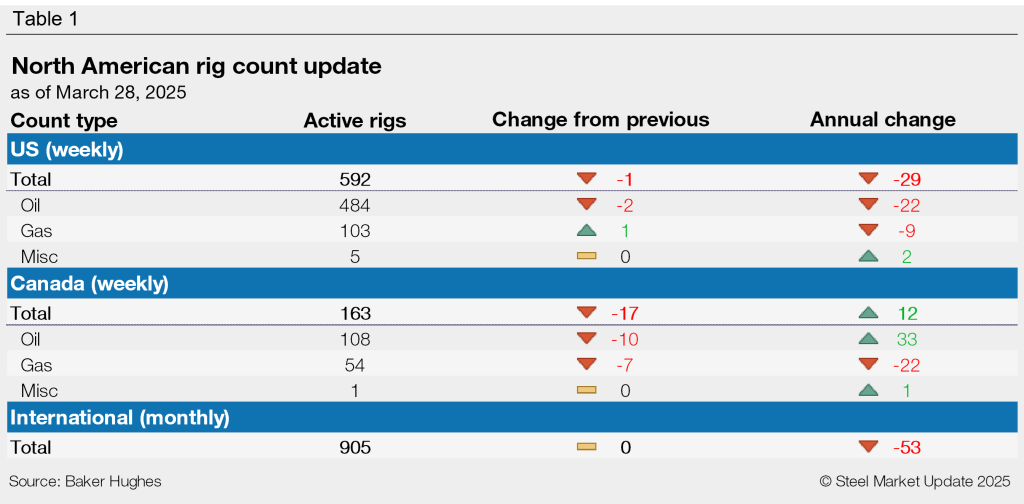Analysis
March 28, 2025
Active rig counts stable in US, decline in Canada
Written by Brett Linton
US oil and gas drilling activity remained relatively steady this week, while Canadian operations declined, according to Baker Hughes. US rig counts remain slightly above multi-year lows, while Canadian activity is slowing following a seasonal peak.
US rig counts have held between 592-593 for over a month, hovering just above the three-year low of 576 rigs recorded in late January. US drilling activity has remained at reduced levels since June 2024.
Canadian counts fell to 163 rigs this week. Recall that in late January, Canadian activity peaked at a near seven-year high. Historically, Canadian drilling activity spikes in January and February, then declines through April as thawing ground conditions and melting snow limit access to roads and drilling sites.

The international rig count is a monthly measure that is updated at the beginning of each month. This February count was 905 rigs, in line with January levels and 53 fewer than the same month last year. This count should be updated next week.

The Baker Hughes rig count is significant for the steel industry because it is a leading indicator of oil country tubular goods (OCTG) demand, a key end market for steel sheet.
For a history of the US and Canadian rig counts, visit the rig count page on our website.







